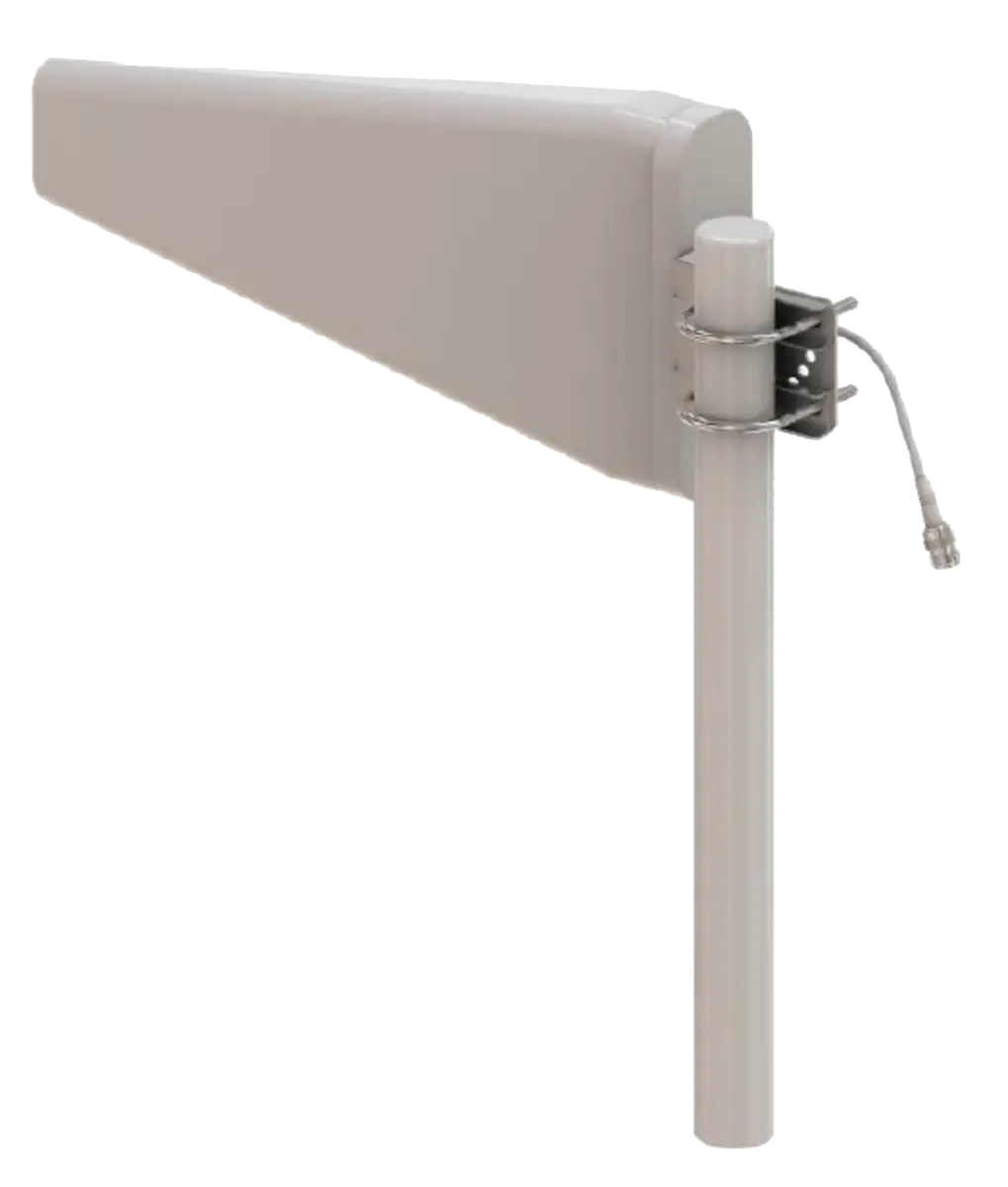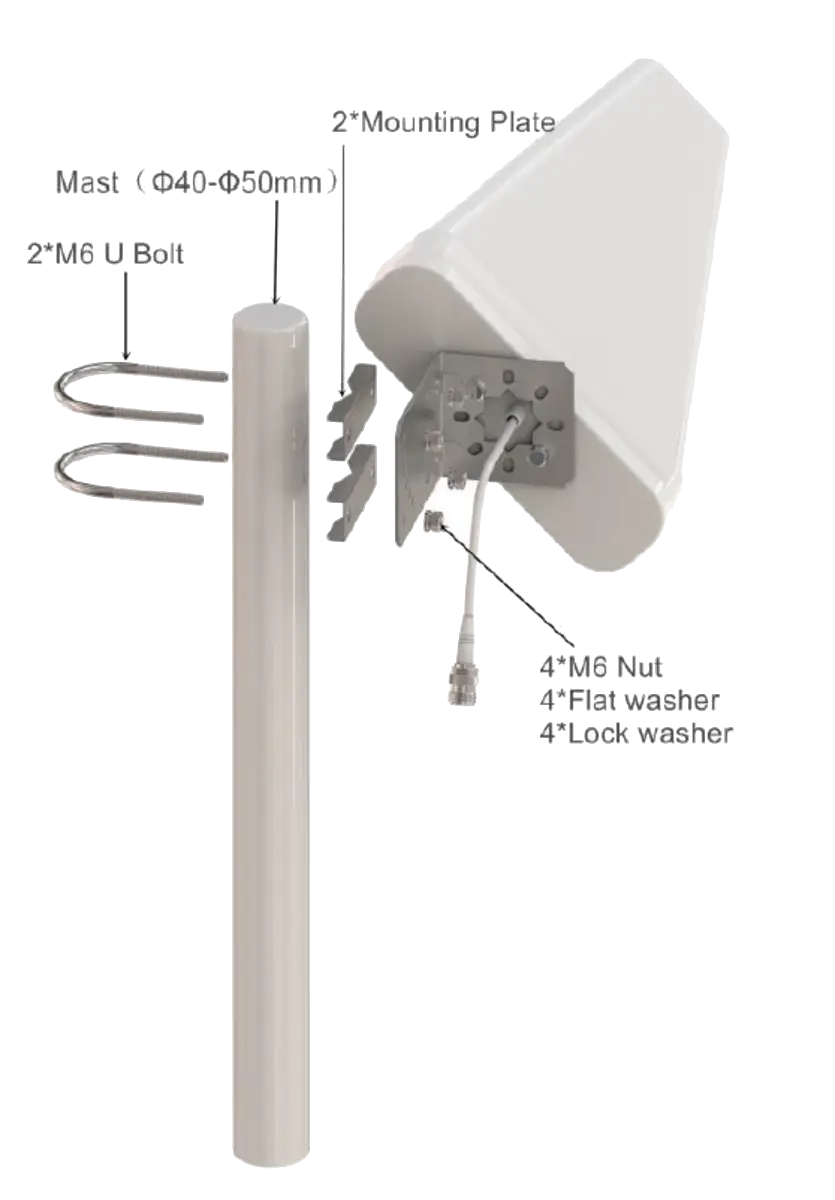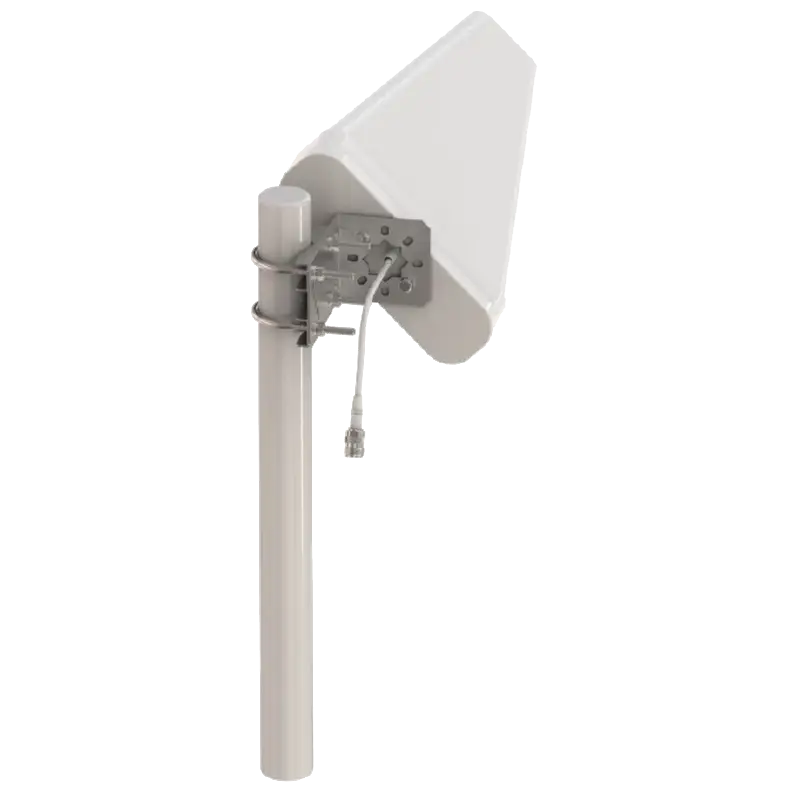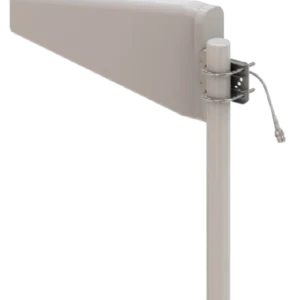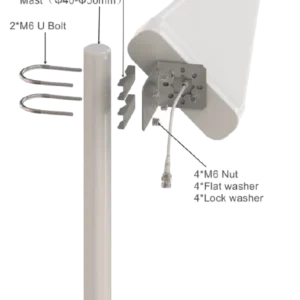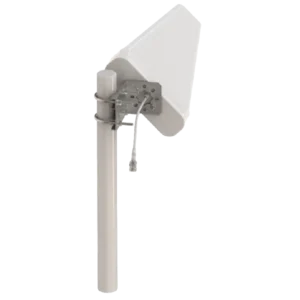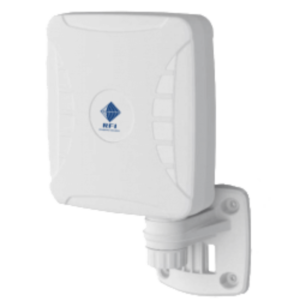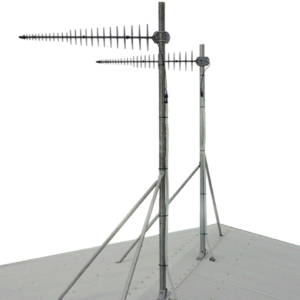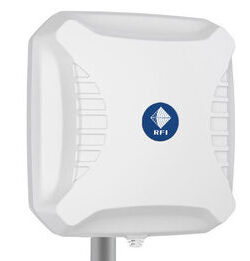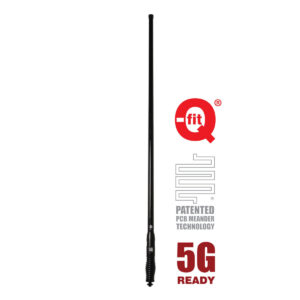Key Features
- Broad operating frequency range
- Compact design
- IP65 Rating
- Urban and rural areas – Poor data signal reception (indoor or outdoor)
- Increase system transmission reliability
- Network operator flexibility – as the antennas is wide-band, a new antenna is not needed per network operator
Works on most networks
Usage
- The LPDA7040-11-0.3NF is a high-performance wide band log periodic antenna designed to operate in the LTE bands from 698 to 4000MHz.
- This wide-band design eliminates the need to purchase different antennas for each frequency.
- This simplifies installations since the same antenna can be used for a wide array of wireless applications where wide coverage is desired.
- The brass & aluminum internal components of this antenna are enclosed within a UV-stable white ABS radome for all-weather operation and is supplied with a tilt and swivel mast mount kit.
- Two antennas can be installed to form a ±45 degree MIMO antenna solution.
Better for hilly areas
- Lower gain Yagi antennas are ideal for areas where hills are very close to your location (within about 2km)
- Hills create a multi-path environment – transmissions that bounce off trees or terrain at an acute angle cause signal echos
- Having travelled a further distance than a straight line transmission these signals are delayed, and to a simple receiver would be nothing more than interference
- However, thanks to clever technology used in cellular communications, multi-path signals can recovered by your modem’s RAKE combiner (or with cyclic prefix for OFDMA based systems)
- A RAKE receiver consists of a series of sub-radios which read the incoming signal at different delay periods (typically one chip in WCDMA) and then combined to result in a higher quality signal
- This antenna rests at ground potential, providing improved lightning protection and reduced precipitation static noise
- Termination is via your choice of an ‘N’ female coaxial connector fitted to a short LMR195 cable tail
- We recommend the use of LMR400 grade cable when using this antenna on 4G due to it’s high frequency
- 4G technology employs MIMO technology, which requires two antennas to function at full capacity – when receiving a 4G signal greater than two bars consider purchasing two antennas to maximise speed. Only one antenna is used on 3G.
Specifications / Frequency
- Network Compatibility
- 9.5dBi Gain
- Telstra 4GX (700MHz)
- Optus 4G+ (700MHz)
- Telstra Next-G™ (850MHz)
- Vodafone 4G+ (850MHz)* *Please check Vodafone Coverage Map
- Optus Regional 3G (900MHz)* *Please check Optus Coverage Map
- Vodafone Regional 3G (900MHz)* *Please check Vodafone Coverage Map
- 915MHz ISM Band
- 11dBi Gain
- Telstra/Optus/Voda 4G (1800MHz)
- All carriers – Urban/Metro 3G (2100MHz)
- Optus 4G/Vivid Wireless (2300MHz)
- 802.11 b/g/n/ac WiFi (2400MHz)
- LTE Bands 1 – 10, 12 – 20, 23 – 41
- 11.5dBi Gain
- All Networks 5G Bands (3.5GHZ)
- 9.5dBi Gain
Electrical Specifications
- Frequency Range: 698-960MHz/ 1710-2700MHz / 3300-4000MHz
- Input Impedance: 50Ω
- VSWR: <2.0:1 / <1.5:1 / <1.8:1
- Vertical Beamwidth: 66° / 58° / 42°
- Horizontal Beamwidth: 90° / 75° / 54°
- Front to Back Ratio: 15dB
- Radiation: Directional
- Maximum Power: 50Watts
Mechanical/Environmental Specifications
- Radome Material: UV Stable ABS
- Cable: 300mm RG141
- Connector: N-Type Female
- IP Rating: IP65
- Temperature: -40°C +65°C
- Weight: 1.1kg
- Dimensions: 440mm (l) 205mm (h) 60mm (w)

